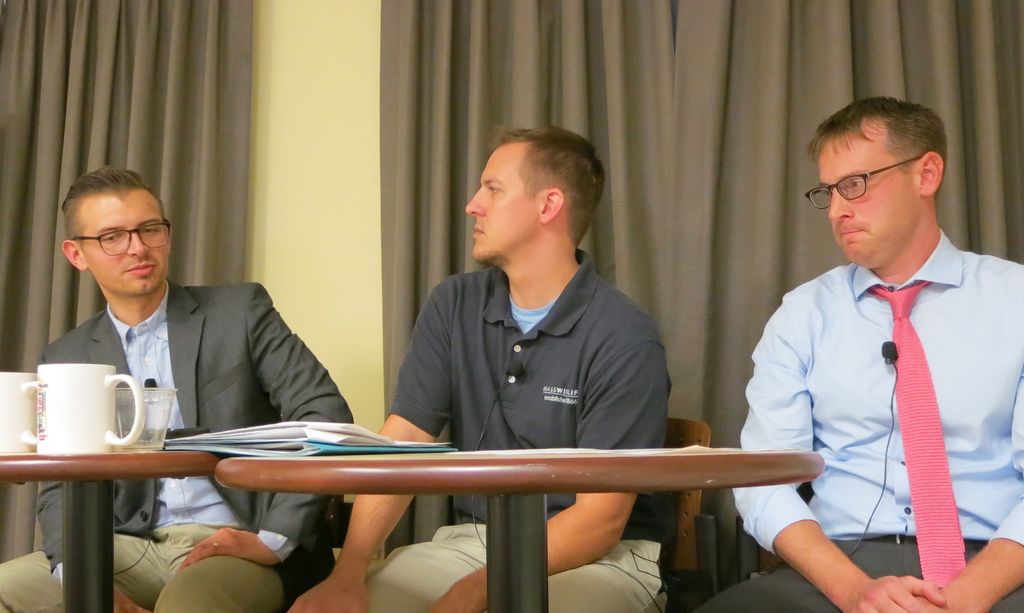Pardee Center Hosts Seminar on Conservation in Urban and Suburban Landscapes

The Frederick S. Pardee Center for the Study of the Longer-Range Future hosted a seminar titled “Conservation in Urban and Suburban Landscapes: What Does Nature Mean?” on Thursday, October 20, 2016. The seminar, which was moderated by Pardee Center post-doctoral associate John Patrick Connors, featured a discussion with David Stainbrook, a Deer/Moose biologist at the Massachusetts Division of Fisheries & Wildlife, and Joshua Duclos, a PhD candidate in the BU Department of Philosophy and a 2016 Pardee Graduate Summer Fellow.
Stainbrook began by providing an overview of the emerging challenges of deer management across Massachusetts, noting that deer populations only moved into the eastern part of the state within the past 20 to 30 years, where deer density is now considered “well above” the statewide management range. The suburban landscape throughout much of eastern Massachusetts is ideal for deer because there is a large amount of “edge habitat” with access to food, protection from hunting, and a lack of major predators. Stainbrook explained that, in addition to property destruction and public safety risks (e.g. lyme disease), an overabundance of deer — particularly populations above 20 deer per square mile of forest — begins to have severe negative impacts on the forest ecosystem.
Connors highlighted several instances of public backlash against efforts to control deer populations around the country. His ongoing research explores why certain communities across Massachusetts choose to introduce (or reintroduce) hunting as a strategy, and how rationales for doing so differ across communities. He outlined the institutional and ideological fragmentation that is making deer population management so challenging, particularly hunting restrictions in certain communities and the differing opinions about the purpose of public land, the ethics of hunting, and debates about what is considered “wild” and “natural”.
Duclos expanded on the ethics surrounding wildlife conservation, particularly exploring the different types of hunting — therapeutic, subsistence, and sport — and the common ideological objections to hunting, including the opinion that hunting causes unnecessary and unnatural harm to sentient creatures. He explored the sometimes conflicting objectives of the animal rights (i.e. the welfare of individual, sentient creatures) and environmental (i.e. the well-being of systems) movements. Finally, Duclos explained the challenge of irreconcilable ethical differences, particularly the fact that no new amount of factual information is likely to change an individual’s fundamental value theory. Ultimately, Duclos suggested that the best way forward is to engage in communicative democracy, including town hall-style discussions about deer population management that are currently occurring around the state.